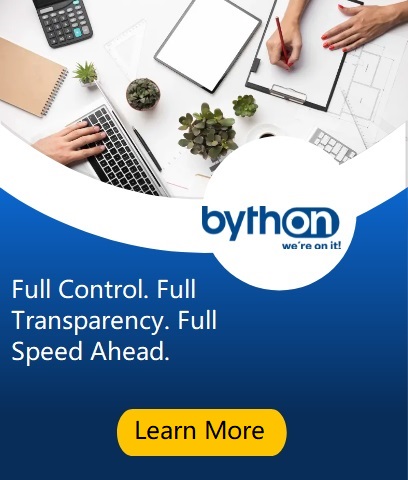Fintech, a fusion of “finance” and “technology,” is now a significant force to reckon with – transforming several facets of the financial services industry within two decades.
Today, this industry encompasses a minuscule 2% of the global financial services revenue, as reported by BCG. However, annual revenues are projected to hit $1.5 trillion by 2030, representing almost 25% of the total valuation of the financial industry.
Payments and B2C transaction optimization dominated the first wave of Fintech. And now, B2B fintech is all set to take the lead – given that the companies who operate in this space have a lot of room for creativity and disruptive change. Small and medium-sized enterprises (SMEs) across the globe, for example, are projected to have unfulfilled credit needs totaling $5 trillion annually, which is where B2B fintech can step in.
Let us explore how B2B fintech influences operating models and the key opportunities for business leaders in the next few years.
The Evolution of B2B Fintech
“B2B fintech” refers to various financial technologies or services designed specifically for organizations. B2B fintech offers diverse solutions spanning risk assessment, lending, payment processing, and cash management, all of which aim to enhance financial processes and augment the overall efficacy of your business.
Smartphone proliferation in the 2010s spawned apps and tools that made financial technology accessible to all. As a result, fintech’s popularity increased significantly, primarily in B2C application scenarios. Since 2015-2016, control and regulatory mechanisms have broadened considerably, and fintech is significantly mature, making it secure for business use.
Companies can delegate tasks such as know-your-customer (KYC), data verification, or enrollment to dedicated B2B fintech providers. This represents the inception of B2B fintech as a standalone sector.
Growing attention towards business-to-business (B2B) Fintech is evidenced in its widespread acceptance and substantial venture capital (VC) financing activity. What’s also interesting is that B2B Fintech has shown the ability to withstand VC funding pullbacks way better than their B2C counterparts.
Venture capital funding allocated for business-to-consumer (B2C) enterprises suffered a significant contraction in 2022 (47%), falling from $57 billion to $30 billion. In contrast, venture capital funding for B2B fintech dropped by only 32%, which was only a short-term correction (as BCG mentioned in the report we cited at the beginning of this article).
Enthusiasm about and awareness of B2B-focused fintech companies has increased because of the myriad possibilities that payment channels, small business financing solutions, and SaaS-enabled back office tools bring to the table. Also, B2B fintech firms are capitalizing on the vacuum left by the partial withdrawal of traditional financial institutions from SME lending in a complex economic climate. This is powered by big data analytics that streamlines the creditworthiness evaluation process.
Moreover, supply chain financing solutions revolutionize the landscape for large organizations. By fostering better supplier relationships, they ensure timely reimbursement and delivery efficiency. Business leaders evaluating the potential of B2B fintech in transforming their operations need to bear this evolution trajectory in mind when formulating their strategy.
What Are the Core Technologies Driving B2B Fintech?
Four prominent technologies have contributed to the growth of B2B fintech:
1. Blockchain
Blockchain — i.e., distributed ledger technology that stores data in immutable and cryptographically interconnected blocks — expedites transactions considerably. Human intervention is unnecessary over the transaction processing stage; everything is actioned autonomously in line with the regulations stated in a smart contract. Blockchain can also decrease transaction costs in B2B fintech by eliminating intermediaries, accelerating workflows, and minimizing documentation.
2. Artificial intelligence and machine learning for AML
Natural language processing (NLP), network analytics, and predictive analytics are the three significant artificial intelligence (AI) tools that benefit B2B fintech use cases most significantly. NLP can examine client names and their affiliated parties for anti-money laundering (AML) sanctions, adverse press, risk factors, and geopolitical exposure, rapidly scanning multiple lists.
By adding network analytics, a sophisticated variant of machine learning, AML analysis is extended beyond the scope of just one variable, such as the location or account name. For instance, it can determine if the sister of a beneficial proprietor of a customer is engaged with a potentially exposed person (PEP) in a different country – through AI correlations.
Predictive analytics forecasts future events using machine learning and historical data. This can be incorporated in AML to compare actual activity against what was projected. Indeed, this is a critical component of transaction monitoring, constantly undertaking risk evaluation and fraud detection.
3. Automation in accounts payable (AP) tasks
A frequent challenge experienced by AP managers is the manual monitoring of invoices, approval collection, and payment processing, all while aiming to prevent the imposition of late fees. Accounts payable automation (AP automation) minimizes the need for manual labor, safeguards against fraud, and prevents human error. B2B fintech tools can organize incoming invoices, schedule payments for confirmation, and finalize payment transactions as per a timetable – in alignment with your specific business regulations.
Another advantage of AP automation is the ability to centralize various payment methods, like wire transfers, virtual cards with rebates, and automated clearing houses (ACH), into an integrated and comprehensive B2B fintech system.
4. Application programming interfaces (APIs)
A code snippet, an application programming interface (API), facilitates the exchange of data and, in certain instances, specific functionalities between two programs. For example, payment processing companies such as Stripe and PayPal use fintech APIs to facilitate the integration of new applications that developers can use.
As a component of their business plan, 89% of banks use APIs with fintech companies; however, APIs aren’t restricted to financial institutions only. Businesses can use this technology to integrate financial services into their operations, such as smarter points of sales, embedded digital wallets, crypto checkout options, and more.
Challenges and Opportunities in B2B FinTech: Striking the Right Balance
B2B Fintech is moving tremendously; however, specific threats and obstacles remain, such as data privacy, consumer protection, and financial security. To tackle these concerns, regulatory bodies across the globe have been formulating innovative and dynamic frameworks that foster sustainable innovation.
The Office of the Comptroller of the Currency (OCC) in the United States initiated an essential breakthrough for the cryptocurrency sector in July 2020 when it declared that national institutions would be permitted to offer custody services for digital assets. The SEC regulates the securities industry, and digital assets like initial coin offerings (ICOs) will also come under its purview.
Since its implementation in 2018, Payment Services Directive 2 (PSD2) has governed payment services within the European Union. Further, if you’re working inside the EU, the release and distribution of electronic currencies are governed by the E-Money Directive.
Business leaders exploring fintech adoption possibilities within these jurisdictions must pay attention to national and regional laws governing B2B fintech.
Companies may need to closely coordinate with governmental issues to tread carefully around current and future fintech laws. Ultimately, all innovation and transformation projects must incorporate data safety and regulatory compliance as essential guardrails to protect the end user and mitigate risk for your organization.
In Conclusion: 4 Ways B2B Fintech Can Help Your Enterprise Operations
Business leaders looking to capitalize on B2B fintech opportunities in the next few quarters need to consider the following low-hanging fruits:
- Credit platforms: These B2B fintech solutions enable credit application, approval, and disbursement processes, focusing on small and medium-sized enterprises. When assessing creditworthiness, they consider an extensive range of data points, transcending the limitations of conventional credit scores.
- Corporate payment platforms: These platforms streamline payment processes by giving enterprises specialized safe, efficient, and cost-effective options. Reconciliation processes are optimized, explicitly focusing on international payments and the exchange of currencies.
- Cash management systems: These tools enable enhanced cash flow forecasting, consequently empowering businesses to make well-informed financial decisions. Using AI and ML, they evaluate historical financial data to forecast potential cash flows accurately and proactively detect and mitigate financial risks.
- Supply chain fintech solutions: Procurement processes can be optimized using these platforms, letting you negotiate more advantageous T&C and receive reductions. Along with risk assessment and fraud detection, the platforms can offer these functions to address the potential risks of supply chain transactions.
Despite talks of a “fintech winter,” interest in the B2B sector is steadily growing. Exploring how you can meaningfully incorporate these new-age systems into your operations while staying compliant will open new doors in 2024.





